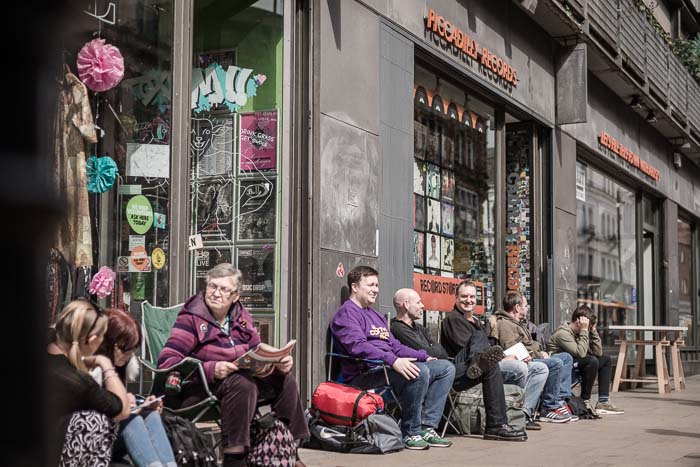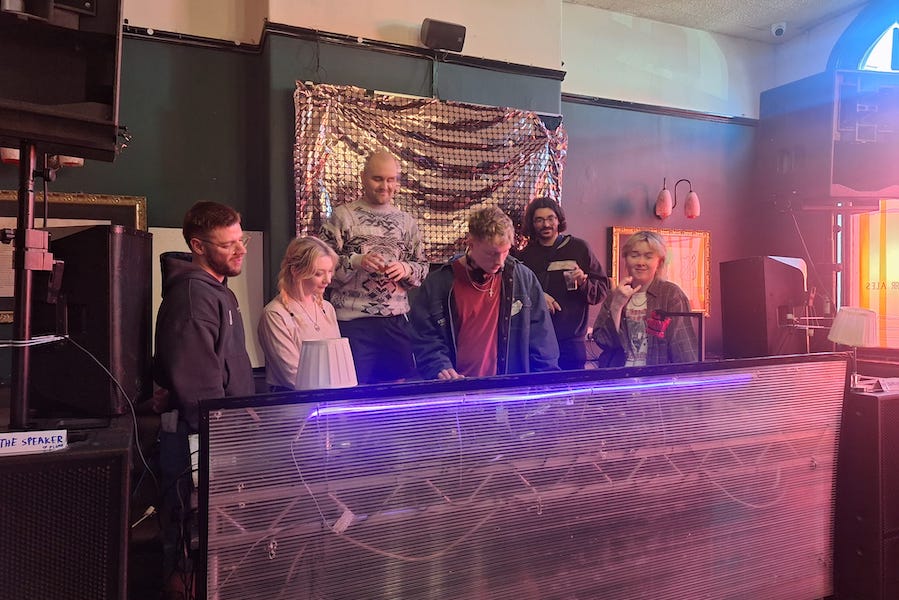The defiant Mancunian charity helping people living with HIV since the early 80s
- Written by Thom Bamford
- Last updated 1 year ago
- Charity
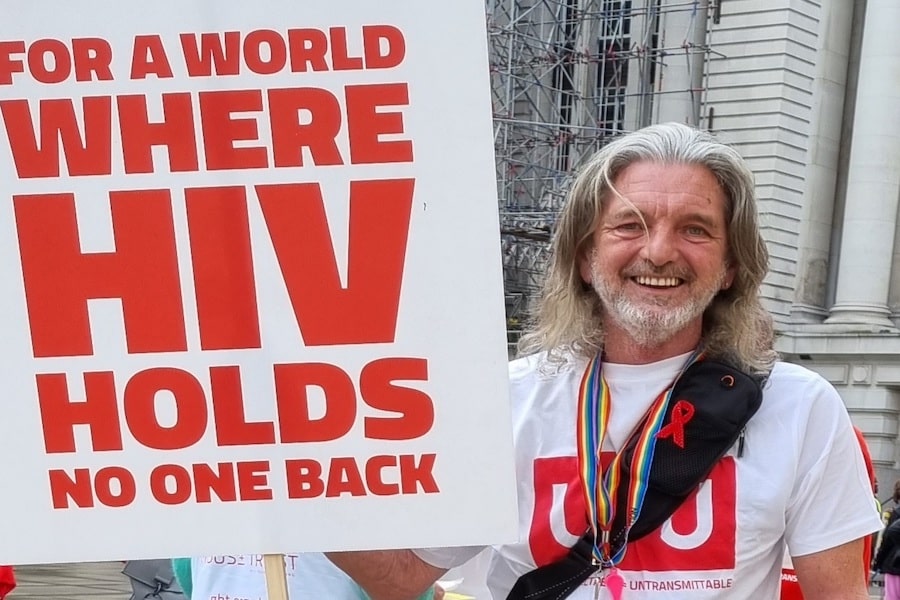
Manchester’s George House Trust has been an incubator for HIV activism, a place of solidarity and support for people living with HIV and a strategic partner for the public sector, health sector and the voluntary sector in the North West for the last 39 years.
George House Trust
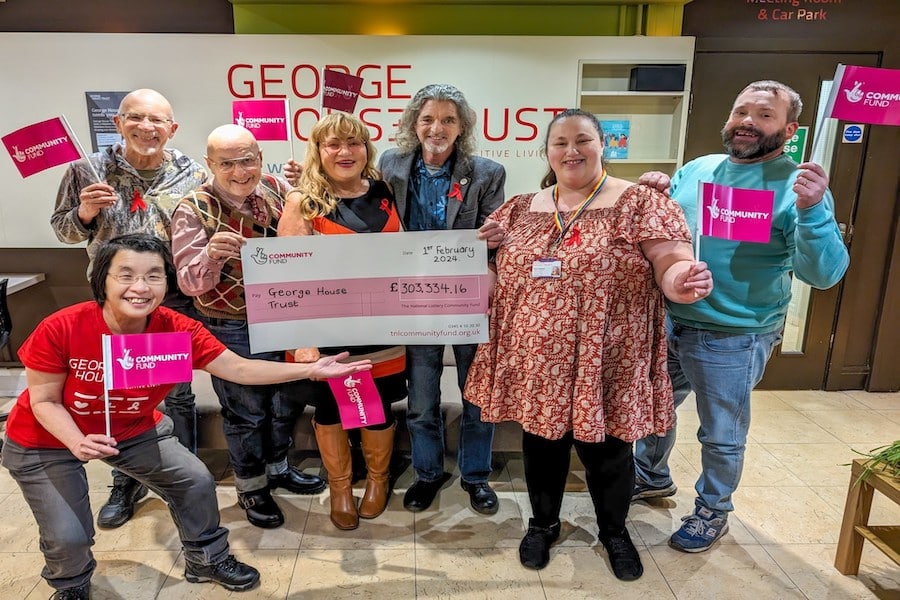
Established in 1985 in Manchester to be the first line in support for people diagnosed with HIV, it has continuously supported people affected and impacted by HIV through talks, advocacy, advice, information, guidance; and well-being support such as counselling, peer mentoring and peer-led interventions, and campaigning.
How HIV has changed
There have been tremendous advances in the care, medication, support and understanding of HIV, but regardless of the scientific and medical progress, many people’s attitudes and understanding of HIV have not kept up and arguably stagnated over recent years.
Darren Knight, Chief Executive at George House Trust
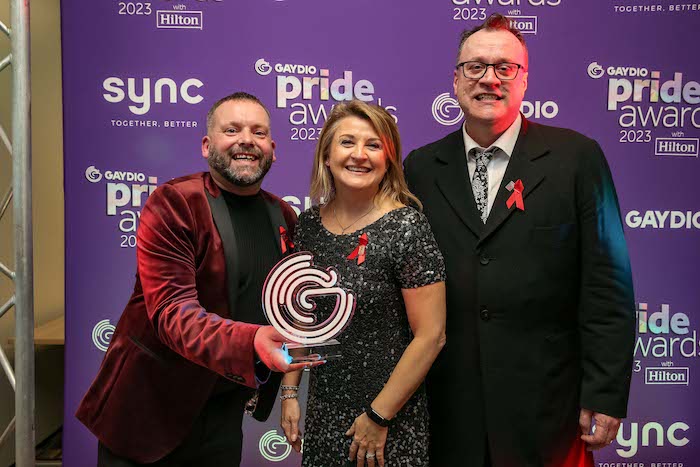
Darren Knight, Chief Executive at George House Trust says, “HIV is a long-term, manageable health condition.
“When diagnosed early and with effective treatment, people can expect to live a normal life. Regardless of this, we continue to see the stark inequalities faced by people living with HIV which are a result of the structural and social stigma that still exists.”
The latest data from the UK Health Security Agency (UKHSA) highlights that almost 50% of people living with HIV are aged 50 years or over, compared to 25% in 2012.
A lack of coordinated healthcare, low levels of knowledge among staff in care homes, comorbidities and polypharmacy are some of the issues that uniquely threaten the health and well-being of people ageing with HIV.
Now, the National Lottery Community Fund is supporting George House Trust to address these issues through the expansion and growth of its Ageing Well project.
Supporting people through thick and thin
Supporting people to age well is nothing new for George House Trust.
Right from the early days of the AIDS pandemic and since the introduction of effective treatment in 1996 that saw patient outcomes improve significantly, they’ve worked with people living with HIV to help them overcome the barriers that they face and focus on their future, their hopes and their dreams.
We spoke to Jim, Marcelino and Angela who all access support from the project, as well as Ageing Well co-ordinator Anna Hughes.
Jim, who has been living with HIV since 2003 says, “A couple of years after my diagnosis, I decided I couldn’t carry on and thankfully someone told me about George House Trust.
“I believe the help I got at that time and the ongoing support I get is the reason I am still here today.
“The younger people that I know these days who are living with HIV seem to have a more positive outlook on the future, but for those like me who have been living with HIV for years – or in my case, decades – we have lived through a difficult period of heightened fear, ignorance and discrimination.
“I am so thankful for the activities and the support that we get from the Ageing Well group.”
Anna said, “I am thrilled that this project is supported by the National Lottery Community Fund. It means we can unlock the potential of people ageing with HIV by providing social opportunities, group activities and information sessions based on healthy ageing.
“We can continue tackling issues like isolation and a range of more immediate support needs, such as dealing with an HIV diagnosis, living with frailty, money and housing advice, accessing white goods and dealing with welfare issues.”
Marcelino shares that “Ageing Well is a project that has helped me a lot, especially with helping me feel less isolated.
“I like meeting new people my own age who have similar age-related problems to me.
“We can socialise, we can talk about it, we can support each other.
“This project also gives me the chance to go to different places, do different things and have a bit more fun in life.
“It’s a great project and it’s a great source of help and support for older people living with HIV.”
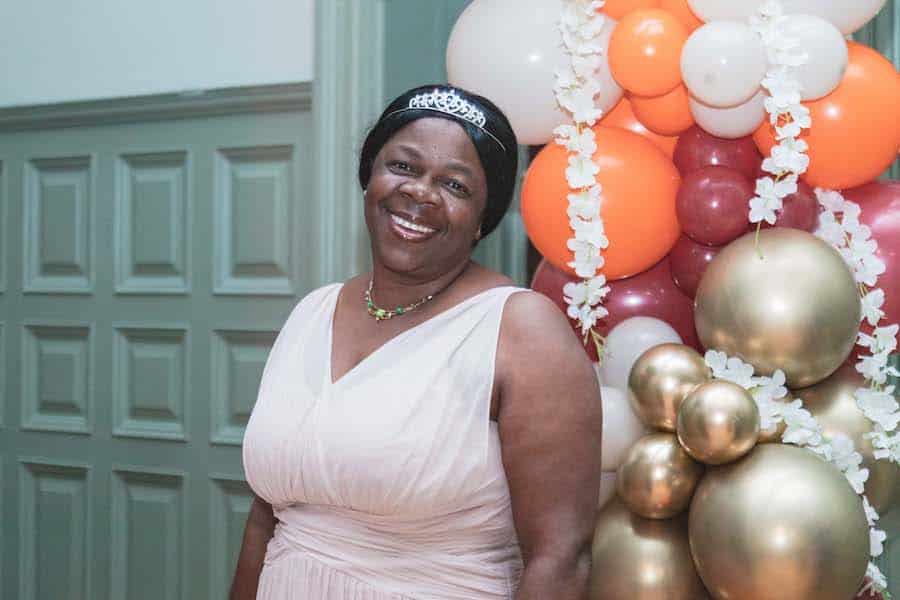
Angela says, “I’ve had positive experiences with the Ageing Well project.
“Being able to mix with other people living with HIV and doing things like knitting and crocheting.
“During these activities, we’ll be socialising and chatting and it’s such a nice experience. I’m so happy to be part of the Ageing Well family.”
Jim adds, “With advances in medication and treatment for HIV, there’ll be more people getting older with HIV – like me.
“That will mean providing more support and resources to ensure we continue to age well with HIV and that’s why this project is so important.
“Being part of an older group of people – older-minded people – and the peer support we give each other is essential for good day-to-day wellbeing.”
Some of the Manchester-based organisations and networks Ageing Well partner with include The Whitworth Art Gallery, Age UK, the Greater Manchester Older Peoples Equality Panel, the Greater Manchester Dementia Care Pathway and the Greater
Manchester Frailty Care Reference Group.
Angela continued: “The thing I like the most is going to the Whitworth Art Gallery once a month where we do different projects – one of them is using clay to make different objects. I still have one of mine at home.”
Reducing HIV stigma
Anna is excited the project will deliver HIV awareness training to staff and organisations working with older people, such as care home staff and domiciliary care providers.
“It means we can continue to reduce stigma and discrimination in these settings and ensure that seeking care in older age is a positive experience for people living with HIV.”
Jim helps deliver these training sessions and echoes the importance of HIV awareness in these settings and thinks it’s important to go into care homes and do HIV awareness training.
“We can change some outdated beliefs about HIV in the care sector, we can give them the facts about HIV.
“It’s vital that carers and care homes know how to look after patients who are living with HIV with care and dignity.
“Being a part of changing attitudes and providing learning is the thing I am most proud of.”
Gillian Halliwell, Head of Funding for the North West at The National Lottery Community Fund, said: “We are proud to be able to support George House Trust as it continues its fantastic work in support of people living with HIV.
“This new project will go a long way in reducing the stigma that can often be associated with the condition and help empower people to improve their quality of life.”
History of George House Trust
Since 1985, George House Trust has been inspiring people living with HIV to live healthy, confident lives by providing HIV support, advice and advocacy services.
In 1985 six gay HIV activists set up Manchester AIDS-Line in response to the arrival of HIV in Manchester.
The City Council formed an ‘AIDS Working Party’ and the North Western Regional Health Authority began to support Manchester AIDS Line financially.
In the 1990s, George House Trust was born.
It relocates to its current home in Ardwick Green North which it has purchased.
George House Trust adopts the slogan ‘There is still life with HIV’.
George House Trust brings together all HIV charities across the North to challenge the government’s downgrading of HIV and the very real threats to public funding.
Into the 2000s George House Trust threw itself into the heart of campaigning, celebrating more than 15 years of action and lobbying for the repeal of ‘Section 28’, which prohibited local authorities from promoting homosexuality in schools.
Also, the start of George House Trust’s campaign against criminalisation and promoting testing through the ‘Testing, testing 123’ campaign.
The extent of Africans living with HIV in the North West began to emerge and was reflected in George House Trust’s service development and campaigns.
The now traditional HIV candlelit vigil at the end of Manchester Pride’s Big Weekend was also established during this decade.
You can find out more on the George House Trust website by clicking here
- This article was last updated 1 year ago.
- It was first published on 1 February 2024 and is subject to be updated from time to time. Please refresh or return to see the latest version.
Did we miss something? Let us know: press@ilovemanchester.com
Want to be the first to receive all the latest news stories, what’s on and events from the heart of Manchester? Sign up here.
Manchester is a successful city, but many people suffer. I Love Manchester helps raise awareness and funds to help improve the lives and prospects of people across Greater Manchester – and we can’t do it without your help. So please support us with what you can so we can continue to spread the love. Thank you in advance!
An email you’ll love. Subscribe to our newsletter to get the latest news stories delivered direct to your inbox.
Got a story worth sharing?
What’s the story? We are all ears when it comes to positive news and inspiring stories. You can send story ideas to press@ilovemanchester.com
While we can’t guarantee to publish everything, we will always consider any enquiry or idea that promotes:
- Independent new openings
- Human interest
- Not-for-profit organisations
- Community Interest Companies (CiCs) and projects
- Charities and charitable initiatives
- Affordability and offers saving people over 20%
For anything else, don’t hesitate to get in touch with us about advertorials (from £350+VAT) and advertising opportunities: advertise@ilovemanchester.com


The Manc aerobics queen who trained the Corrie cast is helping raise charity cash
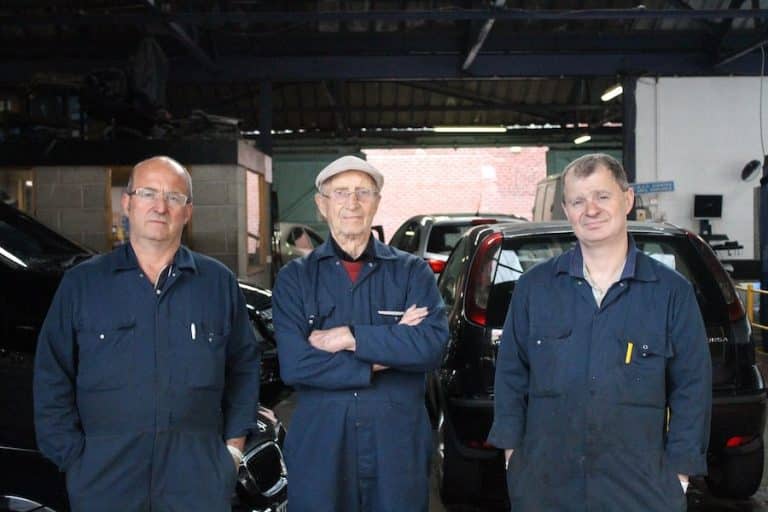
Ancoats to get even cooler as independent market set for MOT garage site

“Manchester is not Britain’s second city, it’s the first” – Jeremy Clarkson
